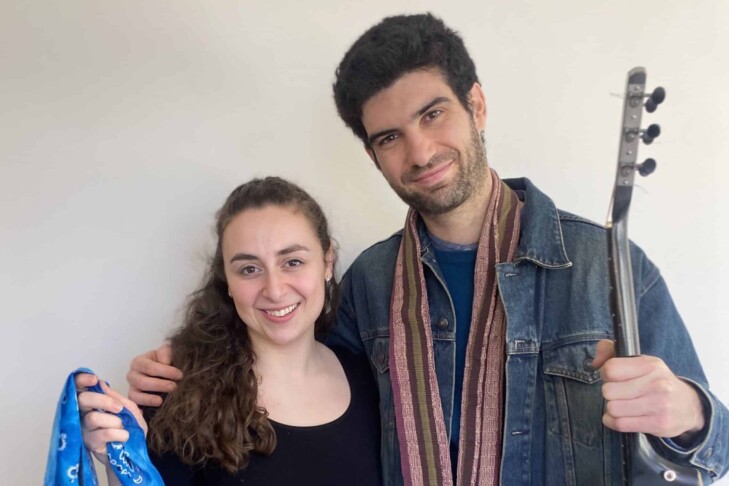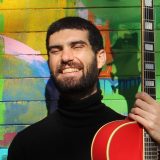I am honored to be a JArts 2022-23 Community Creative Fellow. As part of my fellowship, I am facilitating workshops with a diverse range of groups and developing music videos for a capstone project that will be unveiled this summer.
As I was developing my fellowship engagements and beginning to envision my capstone project, I realized that I’d like to focus my creative energy on the idea of peace. Popular media bombards us daily with images about money, politics, sex, science, religion, sports, and the list goes on. But where can one find a contemporary discourse on peace? Speaking or even thinking about peace can be perceived as naive, childish, or corny. I realized that I am craving a different conversation, and thought that others may experience a similar lack.
Fueled by this realization, I decided to use the platform of my workshops to try and provide a space for audiences to reflect collectively on peace. As I share my music as an inspiring and healing background, I invite my audiences to collaborate in groups to create a joint, contemporary prayer for peace. Using the power of my art to generate vulnerable conversations among Boston communities has been a joyful and exciting experience that reconnected me with my inner purpose as an artist.
Inspired by the collaborative texts of my workshop participants, I began refining my own musical prayer for peace that blossomed into a guitar and dance collaboration with my co-fellow, dancer and choreographer Rachel Linsky. Interestingly, what came out of me was not a joyful melody, but rather one full of sadness and pain: a lament. At first, I was confused by this. But slowly, it started making sense. The thought of peace brought up my own pain of growing up in war, conflict, and tension. Only by working through trauma could I start imagining a better reality. Many of the collaborative texts I have collected reflect that peace is about making space for others. Perhaps peace is an act of extension. Jewish-French philosopher Emanuel Levinas said, “Thou shalt not kill is the first word of the face… This commanding of the face is what I call the word of god in the face.” The idea of entering the reality of another and the compassion that it creates has come up in my work with Rachel. How might we connect music and dance to express the tension embodied in reaching toward the needs of another?
A fascinating part of my research for the fellowship has been learning more about the role of music in Jewish communities throughout history. One of the moving stories I have come to discover is the one of Rachel Hebrea Cantarina, a singer who lived in the Venetian ghetto of the 17th century. At the time, Jews in Venice were concentrated in a walled-off complex. This denied any possibility of expansion and forced the community to build up, with some of the narrow houses reaching upwards of seven stories. The ghetto’s gate was locked after dark, and guards were patrolling around it to ensure that no mixing between Jews and non-Jews would be possible.
In 1609, Rachel’s supreme musicianship earned her a special permit to leave the ghetto at night to sing in the homes of respectable members of society. She was later found “Eating, drinking, and behaving dishonestly with Christian commoners.” This did not deter Rachel, who was found in June of 1613 singing in a gondola at night without permission. Rachel’s courageous and rebellious story goes to show how central music has always been to the act of crossing made-up boundaries between people. I strongly believe that music will always serve as a bridge, allowing people of all nations and faiths to acknowledge and celebrate our common humanity.
These days we are celebrating Passover, a holiday centered around freedom. As we gather for our seders, I pray that we will make space to reflect on the pains and fears that might be holding us back from the freedom to imagine, discuss, and create peace.
This post has been contributed by a third party. The opinions, facts and any media content are presented solely by the author, and JewishBoston assumes no responsibility for them. Want to add your voice to the conversation? Publish your own post here. MORE



